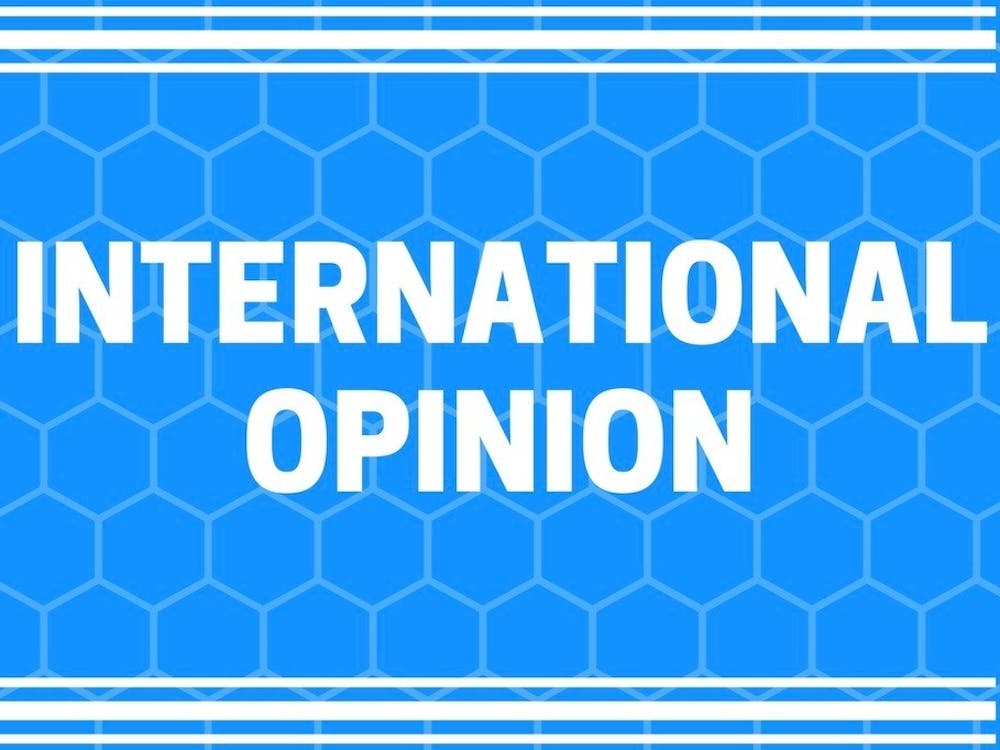Around this time last fall, I was deciding between studying abroad in Geneva or in Dakar, Senegal. I was weighing two very different countries that would allow me to live two very different experiences. In Geneva, I would focus on my direct area of study: diplomacy. In Dakar, I would be exposed to a completely new culture.
I haven’t looked back since I chose to study in Senegal, and I’m thankful to be living this life-changing experience. At the same time, living in a new culture comes with its challenges. I came to Senegal with a bright and optimistic outlook about experiencing this new culture and living outside of my familiar comfort zone. But as time has gone on, I’ve found that it is getting increasingly difficult to deal with challenges I would not normally have to face in the U.S.
My time in Senegal has led me to analyze my identity in ways I never have before. I have recently been reflecting on a quote from author and teacher Clay Shirky that reads, “When you're accustomed to privilege, equality feels like oppression.”
The optimism I came to Senegal with and my ability to look at all experiences with positivity are wearing increasingly thin. Specifically, I’m tired of being objectified every time I leave my house. As a white woman in Senegal, I’m very visible when I walk down the street. Men call to me, follow me on foot and in cars, ask whether I have a husband and propose to me, regardless of me telling them, “Yes, I do have a husband.”
Once, a man followed me and demanded my attention for so long that I bought something from a boutique and then ran out the back door of the shop to lose him. My host brother in a village I visited felt perfectly entitled to ask to sleep with me every night before bed. A man at the gym felt entitled to ask me: “Why aren’t you doing abs? Are you happy with a stomach like that, with a body like that?”
Many men feel entitled to my attention when they yell to me on the streets, and they get angry when I ignore them. I am so tired of being objectified, harassed, followed and talked down to. I’ve found myself thinking, “Wow, I can’t wait until I go home and can be anonymous again.”
Here’s the thing, though. My anonymity in the U.S. is a product of my white privilege. To return to the U.S. and bask in that anonymity without question would perpetuate the kind of system that I currently struggle against in Senegal. Just because I can walk down the street and remain anonymous does not mean everyone in the U.S. has that same privilege.
I can walk into a Chanel store if I want and look around without drawing the kind of suspicion a black woman might draw. I can walk around a fancy neighborhood without people calling the police on me as they might do to a black man or woman. I can speak French in the grocery store without being harassed for not speaking English because “this is America.” I can go on a date with a man without fear of how people might judge me for my sexual orientation.
Ideally, freedom from harassment, racism, sexism, homophobia, xenophobia or any other judgment will one day be a right for everyone rather than a privilege for some. But this is not our current reality, and I think it is important for myself and others to recognize and reflect upon our places within systems of power and oppression, especially as we study abroad, so we can better support others and move toward a more equal future for everyone.
What we learn about different cultures during our time abroad and how we use this knowledge to become more aware and empathetic separates a "fun semester" from a learning experience filled with personal growth.
Contributor Charlotte Bednarski is currently studying abroad in Dakar, Senegal. Contact Charlotte at charlotte.bednarski@richmond.edu.
Enjoy what you're reading?
Signup for our newsletter
Support independent student media
You can make a tax-deductible donation by clicking the button below, which takes you to our secure PayPal account. The page is set up to receive contributions in whatever amount you designate. We look forward to using the money we raise to further our mission of providing honest and accurate information to students, faculty, staff, alumni and others in the general public.
Donate Now



